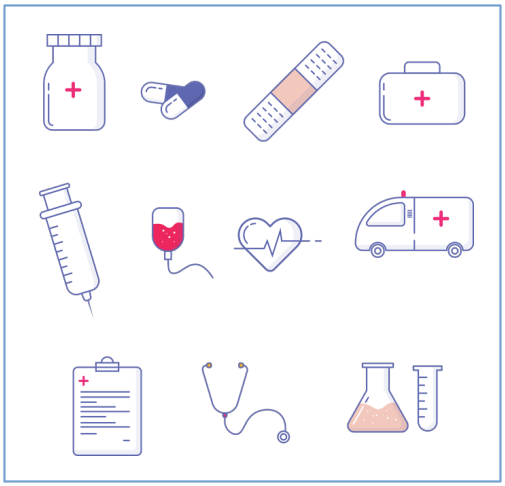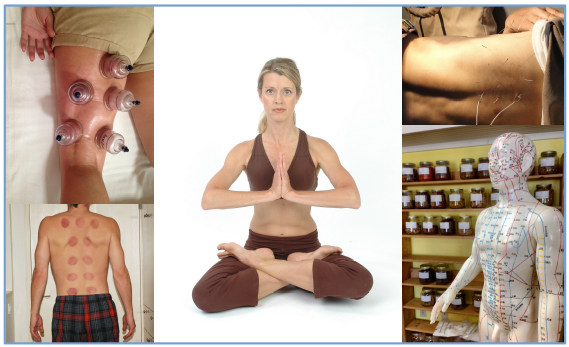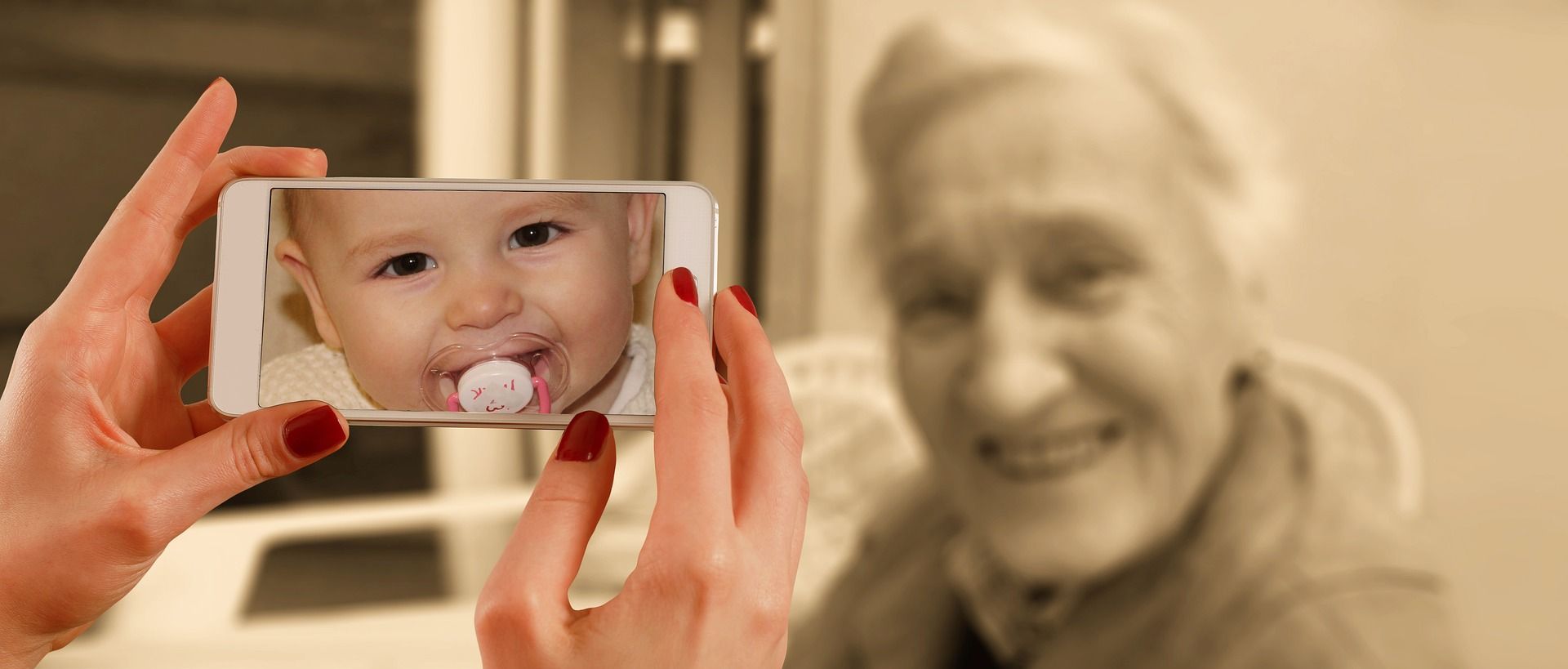
Everything, everywhere, all at once - holistic approach to healthcare
Shifting our mindset on how we view health and wellbeing could result in us living longer, and in better health.
Summary: A broader focus on overall wellbeing has been core to health care practices in a number of countries in the east for centuries, however, it has become more mainstream globally too. The complementary and alternative medicine market was estimated to be US$117 billion in 2022 rising 5x by 2030. But that is really talking about 'provided services'. What we really need to understand is our overall approach and how we think about health and well-being. The most common approach in the west is an allopathic approach that focuses on treating specific symptoms or illnesses; in many eastern countries the approach is holistic treating the whole person rather than just their illness or symptoms. We look at those two approaches in more detail, some of their pros and cons and how a resultant focus on prevention (building resilience) can reduce the amount of treatment that is needed.
Why this is important: The whole approach to health and well-being could move from one focused on treatment to prevention; from allopathic (focus on specific ailments) to holistic. If we do start living longer, and in better health, there will be knock-on effects to society, family, education and productivity.
The big theme: The ongoing survival of the human species is one of the ultimate sustainability themes. Understanding the broad spectrum of influences on human ageing and well-being can help us understand areas for investment as well as individual choices that we can make.

The details
In November 2014 I travelled to Jakarta for several days of meetings with Indonesian companies, accompanying European based investors. Whenever I travel I always like to eat as locally as possible and this trip was no exception. That meant rice at breakfast, as well as lunch and dinner. It's possible that was a mistake on my part as I ended up being constipated for the next ten days. That's right. Ten days. I took over-the-counter laxatives, I visited my doctor, but they, like my bowels, were stumped.
Then my boss at the time suggested I visit (actually she dragged me to) her Chinese doctor, Dr Mei. I went with a hugely sceptical mindset. After an acupuncture and cupping session I felt noticeably better. A few hours later, 'movement' resumed.
Dr Mei told me that she had rebalanced me by redistributing and balancing the electrical charge in my nervous system with the acupuncture and promoted blood and fluid circulation with the cupping. She explained how the procedures worked in a very scientific way. It made logical sense to me. It wasn't 'mystical'.
The focus was on me as a whole rather than on my specific constipation symptoms.
A broader focus on overall wellbeing has been core to health care practices in a number of countries in the east for centuries, however, it has become more mainstream globally too.
For example, in recent years our understanding of the importance of gut flora and the gut-brain axis to overall wellbeing has increased dramatically. The best-selling book 'Gut: the inside story of our body’s most underrated organ' by Giulia Enders is a comprehensive introduction. It is also an area we shall be exploring in more depth in a later blog.
Sleep is another area that has been the focus of an increasing amount of academic and clinical work. A budding supplements industry has also aimed at improving overall quality of sleep in the hope of bolstering wellbeing. Numerous studies have made the link between insufficient high-quality sleep and obesity, diabetes, cardiovascular disease and immune function.
The complementary and alternative medicine market was estimated to be US$117 billion in 2022 rising 5x by 2030. But that is really talking about 'provided services'.
What we really need to understand is our overall approach and how we think about health and well-being.
The most common approach in the west is an allopathic approach that focuses on treating specific symptoms or illnesses; in many eastern countries the approach is holistic treating the whole person rather than just their illness or symptoms.
Let's look at those two approaches in more detail, some of their pros and cons and how a resultant focus on prevention (building resilience) can reduce the amount of treatment that is needed.
Allopathic approach

Allopathic healthcare, often referred to as 'Western medicine' is the dominant approach to healthcare globally and in most western countries. It is a system of medical treatment that uses drugs, surgery, and other interventions to treat symptoms or diseases. Allopathic healthcare focuses on the physical aspects of the body and relies heavily on scientific research to diagnose and treat illnesses.
The allopathic approach to healthcare has several benefits.
It is very effective in treating acute and life-threatening illnesses. For example, if you were suffering from severe pain, you could be prescribed painkillers or have surgery performed to alleviate the pain quickly.
Scientific methods, imaging and lab tests can provide accurate diagnoses for diseases meaning that more targeted and effective treatments can be used. Medical technology and equipment is improving all the time meaning that effectiveness is also getting better.
However, it can be expensive, making it less accessible, particularly to people with low incomes.
Additionally, allopathic healthcare often relies on medications that can have severe side effects or become addictive. For example, in 2021, roughly 350,000 people globally died using opioids, a class of powerful painkillers including fentanyl, codeine and heroin. The risk of addiction from prolonged use is high. In the US alone, fentanyl overdose is thought to claim around 200 lives per day.
Finally, because an allopathic approach can be focused on treating the symptoms of a disease rather than addressing the underlying cause, health issues can recur, increasing treatment length and cost.
Holistic approach

A holistic approach to healthcare focuses on the whole persona and takes a more natural and integrated approach to promote healing. An important difference with the allopathic approach is that a holistic one aims to address the underlying cause of illness, rather than just treating the symptoms.
One significant benefit of a holistic approach is that it considers all aspects of a person's life, including their mental and emotional health. That tends to result in a more comprehensive and personalised treatment plan that addresses the root cause of a patient's illness. Additionally, treatment is often less invasive and less reliant on medications, and so can have fewer side effects.
However, there are also some drawbacks to holistic healthcare. It can be challenging to find qualified practitioners, and treatments can be expensive, making it less accessible to some people. There is a lack of comprehensive scientific evidence to support their effectiveness beyond the Additionally, some holistic healthcare treatments lack scientific evidence to support their effectiveness.
Finally, holistic healthcare can take longer to show results, and some patients may prefer a quicker fix to their health issues.
A few examples of holistic medicine treatments include the following:
- Acupuncture: very fine needles are inserted into specific points in the skin and can be stimulated by twisting gently or even having small electrical currents applied 👈🏾 this is what I had! It is thought that acupuncture works in a number of ways from stimulating the central nervous system to potentially a placebo or mind-over-matter effect.
- Cupping: applying cups to specific spots with suction (often created by putting a flame into the cup before applying) effectively drawing fluid into the area. There is not enough research to draw firm conclusions about its efficacy but all I can say is it has helped me!
- Psychedelics: these are chemical compounds (for example LSD, psilocybin etc) that put a person into an altered state of mind. With the help of a therapist they can process feelings and thoughts as their minds 'open up'. It is holistic in that, whilst it has shown some promise in treating conditions like depression, it is not specifically targeting that but rather focusing on the mind as a whole.
- Fasting: this involves restricting the times of the day (or even days) that you eat food. Some research suggests that it can lead to a leaner body, a sharper mind including boosted memory and greater biological life expectancy. It can potentially even help people with type 2 diabetes. There are even suggestions that it stimulates autophagy, where damaged or redundant parts of cells are restored and cells are effectively renewed.
Implied in a holistic approach are the concepts of fitness and resilience so that we are better prepared to cope with challenges thrown our way. This leads us to the concept of preventative medicine.
Preventative medicine
We introduced the landscape of biological ageing in a recent blog. You can read it here 👇🏾

The majority of areas for focus are essentially about building the body's and mind's resilience to disease and damage - i.e. preventing the need for treatment in the first place.
Renewal therapies, including cellular regeneration, rejuvenation and cellular reprogramming are concerned with returning our individual cells back to a more youthful state either through genetic code programming, intra-cellular debris clearing, autophagy (reusing old/damaged cell parts) or even creating whole organs.
Immunology in the ageing field is about finding ways of improving our immune systems to combat disease and target inflammation more broadly rather than necessarily focusing on individual conditions.
'Let food be thy medicine and medicine be thy food' as Hippocrates is believed to have said. We mentioned in the introduction about the increasing insights on the importance of our gut microbiome or colony of bacteria that we live symbiotically with. Our diets can impact the state and composition of our gut microbiome. The connection between the gut and the brain - the gut-brain axis - is key. Chemicals released by the microbiome in our gut can influence the development of the brain from birth and throughout our lives. Simplistically just think about the times you have felt "butterflies" in your stomach.
In sport or physical activity we can sometimes get injured and we get treatment for that injury. An after the fact approach. But it is very common for us to prepare ourselves by building up our fitness and technique in order to make us more resilient to the demands of the activity concerned. A before the fact approach.
Mental health has historically been allopathic in nature. A person suffers from a condition like depression or anxiety and receives treatment for the symptoms of that condition.
Elite athletes have seen benefits of this for a long time, with many even prioritising it above physical prowess. It was commonly accepted that George Foreman was physically more impressive than Mohammad Ali in the build-up to the Rumble in the Jungle. Ali was even a 4-1 underdog. However, arguably Ali’s mental fitness enabled him to record a famous victory.
More recently, the importance of mental fitness to overall wellbeing and performance has been recognised for the general population with several mindfulness apps emerging to encourage us to take time out and work on our mental fitness.
Fika, a UK based start-up, is on a mission to mainstream mental fitness by training people in seven skills - positivity, motivation, stress management, confidence, focus, meaning and connection.

Health care systems
Holistic healthcare practices have gained popularity in recent years, and some countries have integrated holistic healthcare practices into their national health systems, in some cases offering them as alternatives or in combination with traditionally allopathic remedies.
Vedic teachings including Ayurveda and Yoga and Naturopathy which promotes self-healing have been followed in India for centuries, but are still popular today. The Indian government set up several Ayurvedic hospitals and research institutions across the country to support the development of Ayurvedic medicine and has even established the Ministry of Ayurveda, Yoga & Naturopathy, Unani, Siddha, and Homoeopathy (AYUSH) to promote and regulate these traditional practices.
Traditional Chinese Medicine (TCM) is an integral part of China's national health system. TCM has been practiced in China for over 2,000 years and is used to treat a wide range of illnesses. The Chinese government established the State Administration of Traditional Chinese Medicine to regulate and promote TCM. TCM hospitals are also widespread across China, and patients can receive TCM treatments alongside conventional medicine.
However, other countries without the same length of tradition have been integrating holistic approaches and treatments with their traditionally allopathic approaches. In Germany, both general practitioners and natural health practitioners called 'Heilpraktiker' can offer complementary and alternative medicines.
In the UK, the National Health Service (NHS) whilst still holding a predominantly allopathic approach has in recent years been moving towards a more holistic one. The NHS offers a range of complementary and alternative therapies alongside conventional medicine including mental health support and social prescribing (non-medical services such as community groups, arts and culture programs, and exercise classes) which help address the social determinants of health. We discussed those in this blog 👇🏾

Finally, as end of life approaches, palliative care focuses on improving the quality of life for patients with serious illnesses and their families and can involve pain management, emotional and spiritual support, and broader end-of-life care.
Conclusion
Holistic healthcare practices are gaining popularity globally, and some countries have integrated these practices into their national health systems. These countries recognise the importance of holistic healthcare and offer patients a choice between conventional medicine and alternative therapies. However, it is essential to ensure that these practices are regulated to ensure patient safety and that they are supported by scientific evidence to ensure their effectiveness.
If the base level of overall population health rises, pharmaceutical firms could see large drug market segments reduce in size or even disappear. Does this spell the end of drug companies? I like to think of this as an opportunity to clear bandwidth for innovation in targeting the more elusive pathogens.
Longer term, in addition to offering choice, the whole approach (pun intended) moving to a more holistic viewpoint can have long reaching positive implications further down the line.
We discussed the holistic approach implicit in the effort to reduce and even reverse biologic ageing earlier in this blog. We shall discuss further in an upcoming Deep Dive: the death of ageing.
Something a little more bespoke?
Get in touch if there is a particular topic you would like us to write on. Just for you.
Contact us
Please read: important legal stuff.


